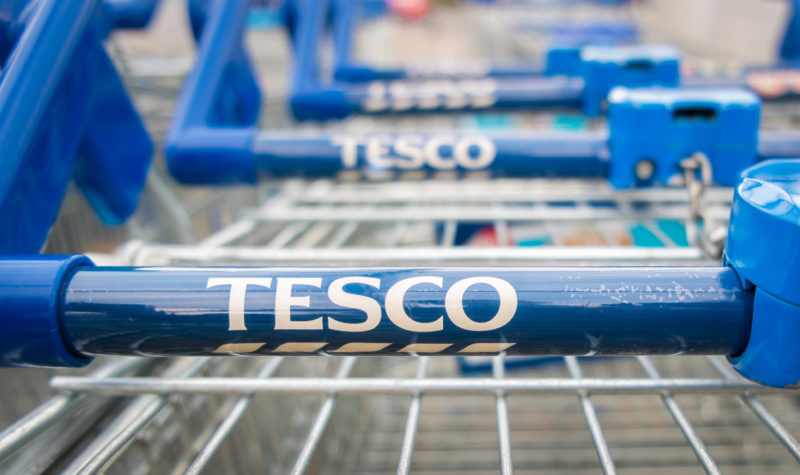Tesco: share price growth could be ahead despite CEO change

Robert Stephens considers why Tesco could have investment appeal following last week’s interim results
The surprise announcement that Tesco’s (LON:TSCO) CEO, Dave Lewis, will leave next year could lessen the stock’s appeal in the eyes of many investors. He has been credited with the company’s improved performance over the last few years, with it delivering stronger sales growth, higher levels of profitability and a clearer competitive advantage.
A change in the company’s CEO may cause a degree of uncertainty in the short run at a time when the business faces weak operating conditions. However, last week’s interim results from Tesco showed that it has online growth opportunities, an innovative strategy and plans to become more efficient. As a result, it could offer long-term investment appeal.
Increasing competitive advantage
The expansion of sector peers such as Aldi and Lidl, as well as weak consumer confidence, necessitates that Tesco strengthens its competitive position. It is aiming to do this through boosting customer satisfaction rates via an improved fresh food offer, as well as exclusive brands that are gaining volume share from its rivals.
The retailer’s net promoter score improved during the first half of its current year. This is in contrast to its sector peers, with its key competitors recording declines in their respective scores. This suggests that Tesco may be able to broaden its appeal to a wider consumer market, as well as benefit from a relatively loyal customer base that ultimately widens its economic moat.
Efficiency
In response to pessimistic consumer sentiment according to the GfK consumer confidence index, Tesco is progressing with plans to become more efficient. For instance, it is utilising new technology to improve its fresh food stock control, while its larger stores have implemented an upgraded labour-scheduling tool that could reduce staff costs.
It has also invested in frictionless shopping technology, while its cashless transactions grew by 18% in the first half of the year. This reduces cash handling costs, and could boost the company’s margins over the medium term.
Expansion
Tesco plans to double its online capacity in the UK. As part of this, it will open more than 25 urban fulfilment centres over the next three years. This could enhance the company’s position in a retail sector that is expected to become increasingly online-focused over the medium term. For example, the UK ecommerce market is forecast to grow at an annualised rate of 5.9% between 2019 and 2023.
Alongside its online growth opportunities, Tesco is increasing its rate of convenience store openings in the UK. It plans to open 150 Express stores in the next three years, which could more closely align it with a consumer that is making more frequent trips to smaller, local stores than in the past.
Investment potential
Risks such as weak consumer sentiment and a chance in CEO could hold back Tesco’s sales performance in the near term. However, the company’s growth strategy could produce an improving financial outlook in the long run.
Trading on a forward price-earnings ratio of 14, the stock appears to offer fair value for money given its long-term growth outlook. After a successful turnaround under Dave Lewis, the company could continue to offer investment potential as it focuses on strengthening its competitive position.
Comments (0)